PUCCINI AT THE OPERA BASTILLE
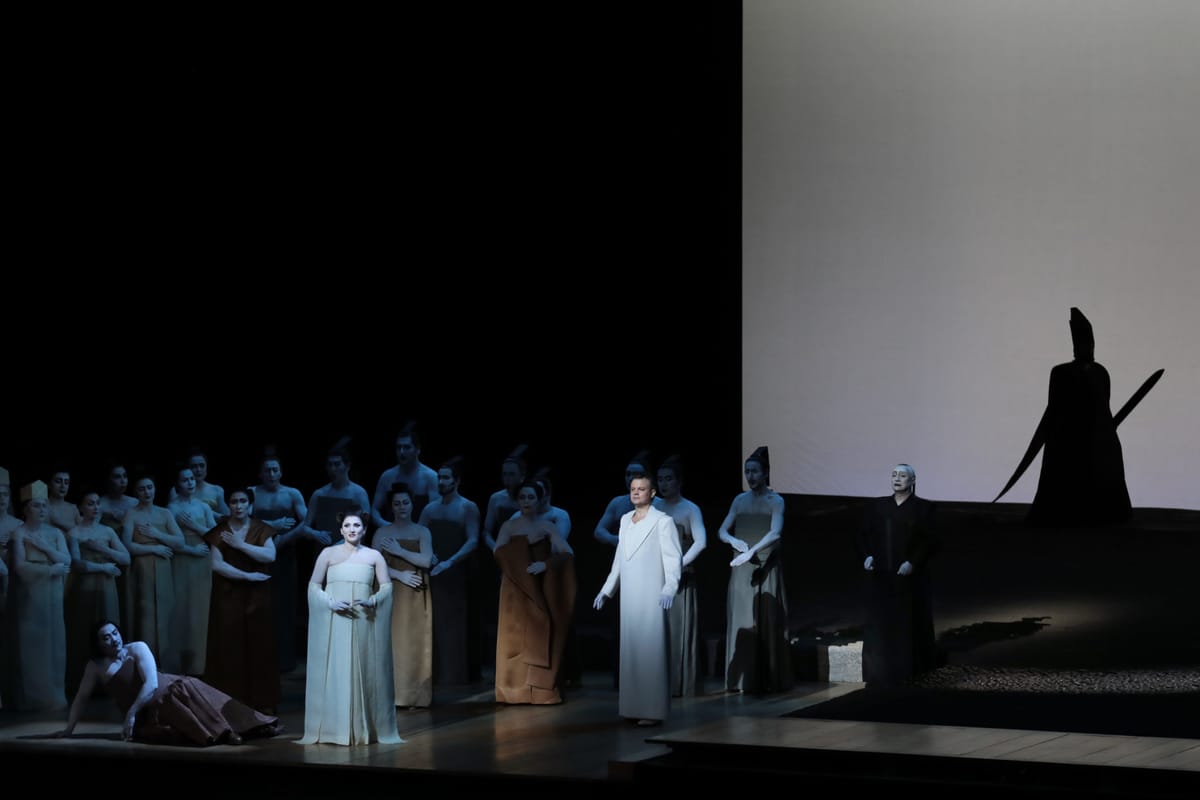
The reigning opera house of France since the last thirty years is the modern theatre (sometimes referred to as a “space ship”) designed by Carlos Ott. With more than 2500 seats it is the largest opera house in Europe. Alongside the Palais Garnier at Place de l’Opera the two constitute the main houses of the Opera National de Paris which celebrates its 350th anniversary in this season (2019-2020). In celebration of this anniversary the 2000-seater Palais Garnier (the 19th century home of the Paris Opera) was witness to a grand ballet Parade (Défilé du Ballet) on opening night. In accordance with the history of its founding by Louis XIV in 1669 under the grander name of the Académie Royale de Musique although even then inseparable from ballet, it performed mainly in the Palace of Versailles and the Palais Royal in Paris. But when the 1789 revolution pushed out the Royal Palaces performances soon resumed at other venues most importantly the Palais Garnier commissioned by Napoleon III opening in 1875 at its current location. Today ballets are more usually presented here along with smaller scale productions of baroque and early opera as well as Mozart and Richard Strauss.
This season also celebrated the 30th anniversary of the opening of the Opera Bastille the ultramodern theatre commissioned by former president Francois Mitterrand for the bicentennial of the French revolution. Stéphane Lissner the director of the Paris Opera says that his slogan for the anniversary “modern since 1669” represents a depository of distant and recent pasts taking responsibility for making this heritage live, grow and develop and in no way conserving it as a museum piece. Supported by Philippe Jordan, music director of the Paris Opera since 2007 the preceding season showcased 19th century Grand Opera like the five-act extravaganza “Les Huguenots” (the rarely performed Meyerbeer opera which is set around the St. Bartholomew Day Massacre of French Protestants in 1572).
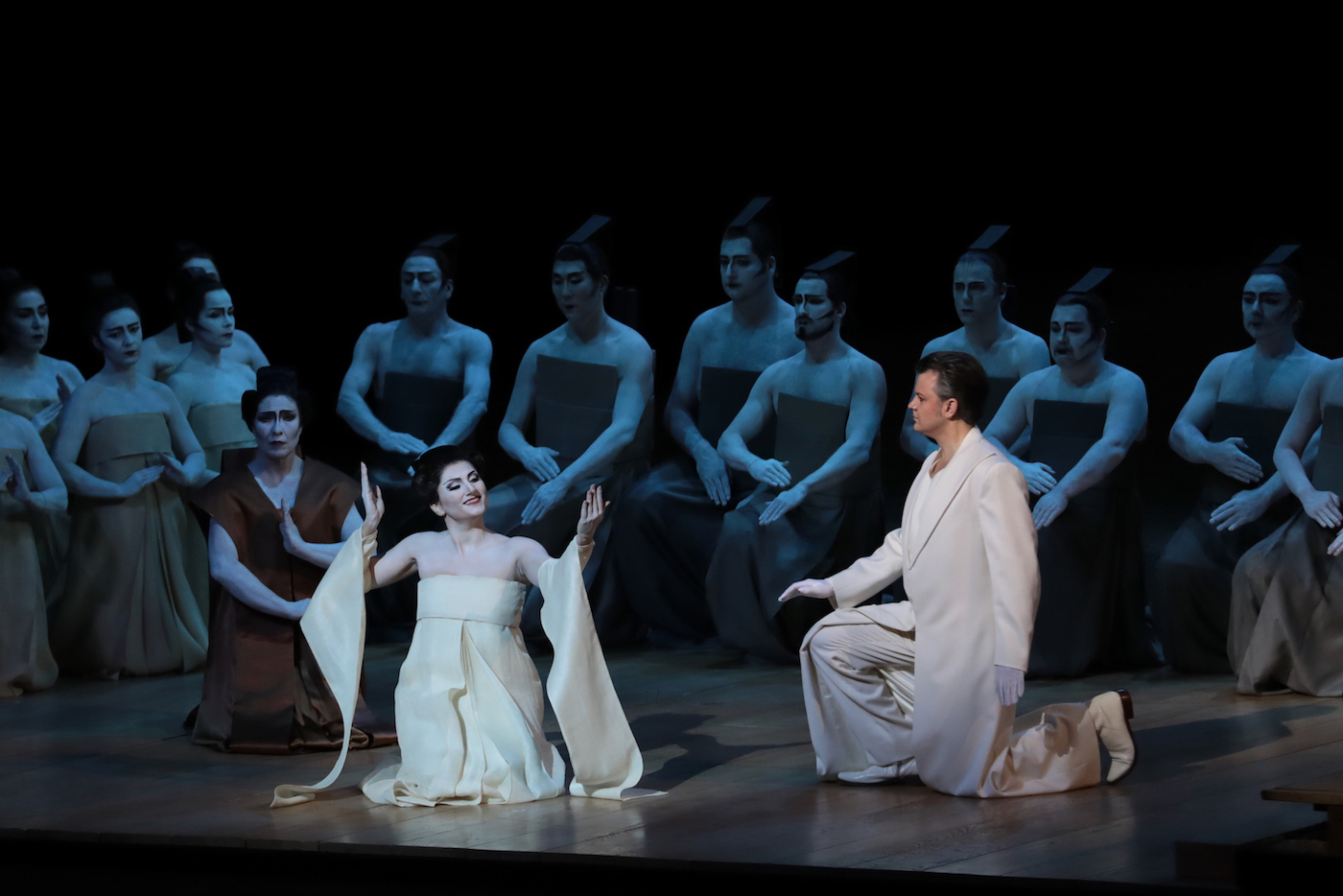
This season opened on 9th September 2019 with I puritani and played Traviata, Butterfly and Don Carlo with Lear at Garnier. The end of the year saw Borodin’s Prince Igor and this year started with Offenbach’s Tales of Hoffmann and Rossini’s Barber. Still to come are Massenet’s Manon and Don Giovanni (Garnier), Adriana Lecouvreur, Boris Godounov, Rigoletto, Bohème and Cosi (Garnier). In addition there will be performance of Rheingold and Valkyrie.
And what of the future? Towards the end of the 2018-19 season it was announced in Le Figaro that the 18 months search for Stéphane Lissner’s successor had come to an end. The current General Manager of the Canadian Opera Company based in Toronto Alexander Neef would succeed from 2021. He has had earlier experience under Gerard Mortier during the latter’s directorship as casting director between 2004 and 2008.
A word about the casting director, a young Greek man appointed by Lissner in 2014. Ilias Tzempetonidis first worked in a similar position with Lissner from 2010 to 2013 at the Teatro alla Scala in Milan. This made him the youngest ever and first non-Italian in charge of casting in the long 240 years history of Milan’s premium opera house. You can read an interesting interview published in Opera News from December 2017.
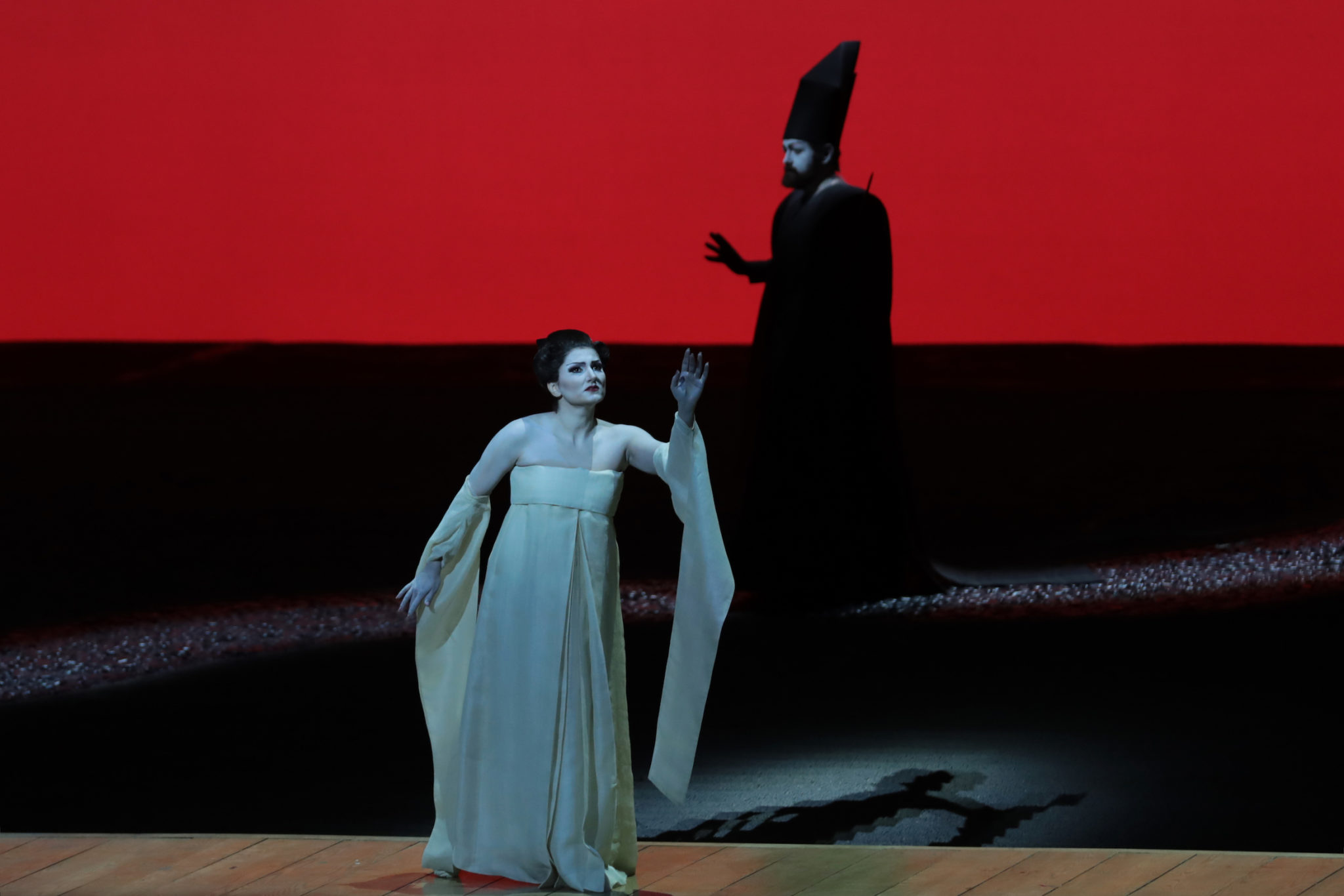
I saw two productions this visit and they couldn’t have been more different experiences. Texas born Robert Wilson has been directing opera in his trade mark minimalist and instantly recognisable personal style for over forty years. As always there is minimalist angular sets, cool brightly coloured lighting skimming the stage floor and jerky body movements in slow motion. Premiering in 1993 this production owes much to Noh and Kabuki theatre. By and large it is static with the singers focused on a single line in the forefront with very little interaction. At the back of the stage is a screen on which splashes of colour (mainly a cool sky-blue alternating with blood-red orange) as a preamble to the opera while the audience is still seating itself. Wilson, seemingly trying to deliberately counter-act the pleasure of representational sets and costumes design, ends up undermining the emotions he seeks to expose. This is an opera which can’t fail to involve at the very least if not move to tears. The music clothes the text by Giuseppe Giacosa (based on a play by David Belasco after a short story by John Luther Long) perfectly but this realisation robbed it over richness of experience in favour of academic minimalism.
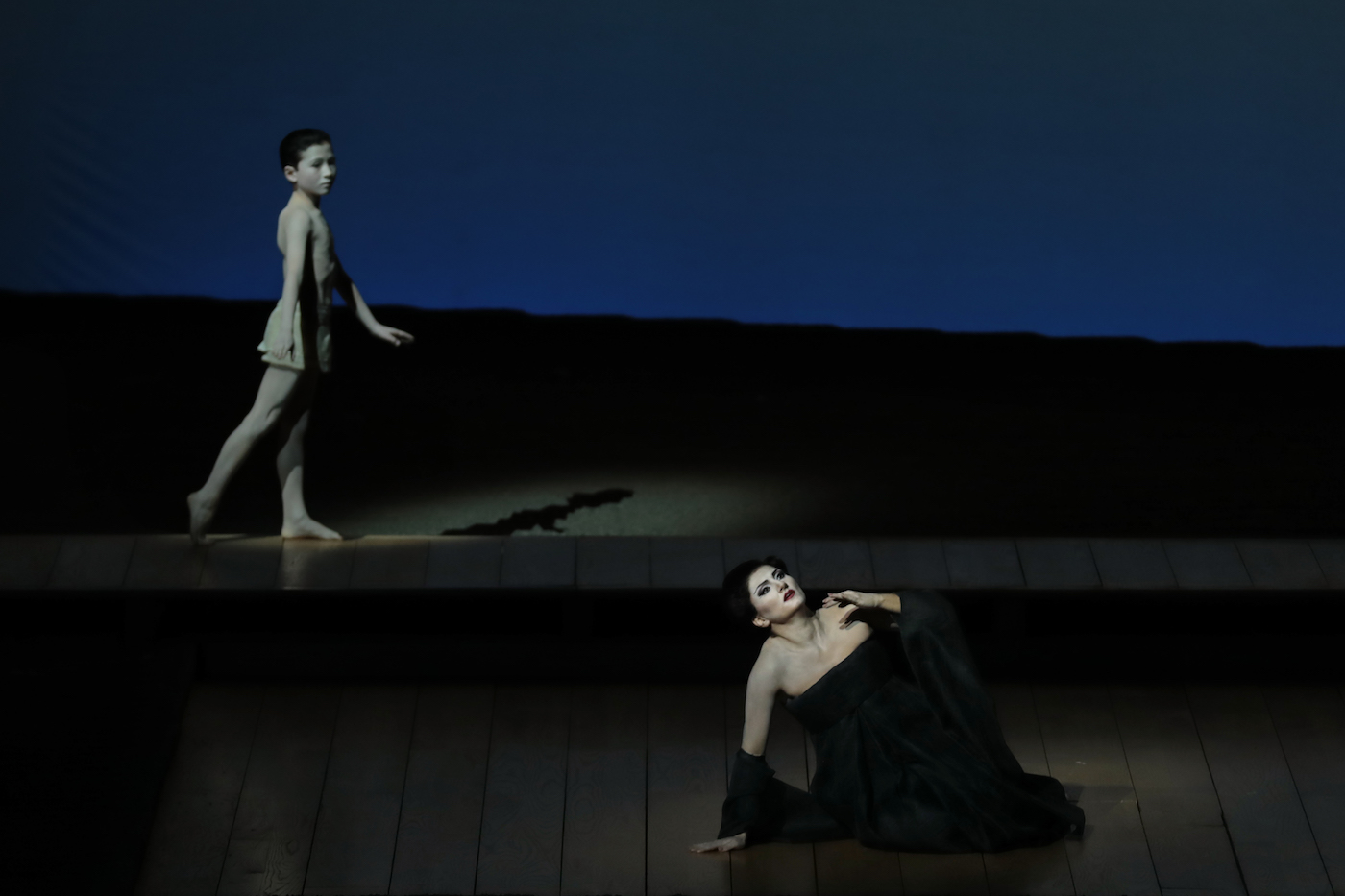
And to add to the evening’s disappointment the singing left much to be desired. Both the lead roles were taken by previous winners of Placido Domingo’s Operalia vocal competition. Dinara Alieva in 2010 (Cio-Cio San) and Dmytro Popov in 2007 (B.F. Pinkerton) both young singers now already fielding international careers. Alieva, Born in Baku, Azerbaijan where she graduated and immediately won many top awards (including the Franchesco Vinas and the Maria Callas Competitions) soon joined the Bolshoi Theatre in Moscow before embarking on an international career. This Butterfly at the Paris Opera, her debut at the Bastille showed the inadequacy of her voice to fill the large auditorium. Essentially a lyric voice she would do well to eschew the lirico-spinto Puccini heroines at least at this point of time. Her entrance aria was tentative while her show-stopper Act II aria (Un bel di vedremo) was underpowered and largely uninflected. Later in Act II the duet popularly called the Flower Duet (Il cannone del porto!) benefitted greatly from the Suzuki, sung by the Canadian Marie-Nicole Lemieux. Although a coloratura contralto she added weight and beauty of tone to her every appearance.
Ukrainian tenor Dmytro Popov began his career as a soloist at the Kiev National Opera making his international debut as Alfredo in La Traviata directed by Jonathan Miller at opera Kristiansund in Norway. Since then he has made his Met debut as Rodolfo in La Bohème in 2016 and has gone on to make an impressive international career. On this occasion the tone was less than ingratiating.
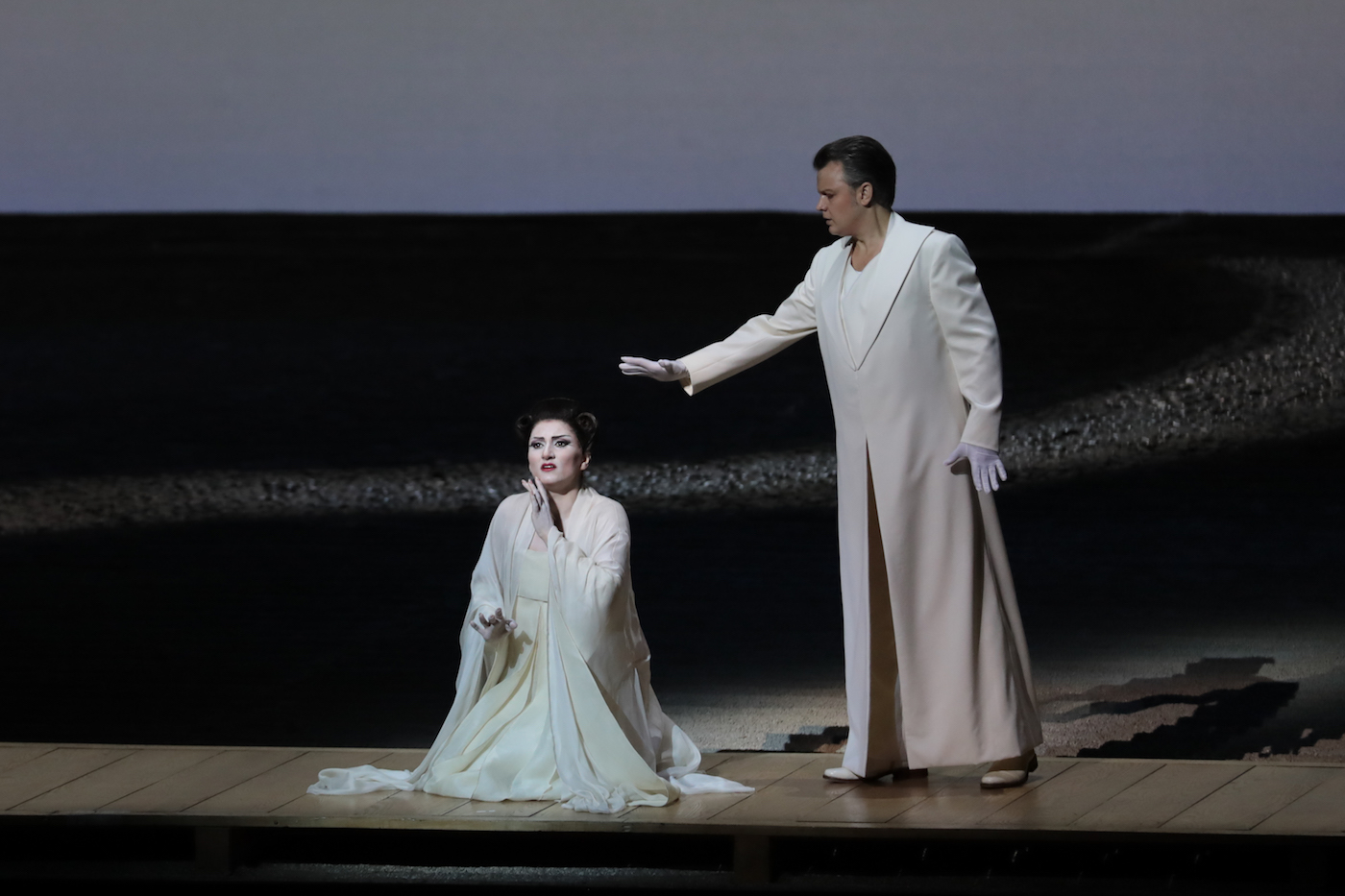
The vocal line flagged when it should soar and his unidiomatic Italian was not a plus point. More than making up for this lack in the two principals was the well-schooled and sonorous Sharpless of Laurent Naouri impressing from the start with cultivated singing and acting. The rest of the cast was adequate with the conductor Giacomo Sagripanti keeping things moving but not especially memorable.
Await my review from two nights later at the same theatre where I experienced Verdi’s Don Carlo which was stunning in every way.




